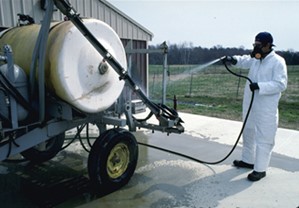Date: March 12 (Thu)
Venue: Forsgate Country Club, 375 Forsgate Dr, Monroe Township, NJ 08831
Fees: Please see the details on registration fees and payment methods at the end of the program.
Credits: CORE, 1A, PP2, 10
PROGRAM
08:30 am Registration and Continental Breakfast
09:00 am Welcome, Introductions, and Symposium Overview. Dr. Gary C. Pavlis – RCE of Atlantic County
09:10 am Managing Grape Diseases: What to Watch and What to Do?
Nancy Sharma, Extension Specialist in Fruit Pathology, Rutgers NJAES.
09:40 am Beyond the Garden State: How Emerging Wine Regions Overcome Perception, Policy, and Market Barriers.
Seth Porter, Chief Innovation Officer, Dean of the Kraemer Family Library, Colorado State University.
10:10 am What’s New from the Industry
10:25 am COFFEE BREAK
10:45 am The Evolution of Long Island Viticulture, 1973-present
Alice Wise, Ag Program Director - Viticulture Research, Cornell Cooperative Extension.
11:30 am Mystery Wine Challenge
12:00 pm BUFFET LUNCH FEATURING NJ WINES
01:00 pm Active Frost Protection in the Vineyard – Panel Discussion.
The Panel: Larry Sharrott (Sharrott Vineyards), William Heritage (William Heritage Winery), Nick Sharko
(Alba Vineyards), Lewis DeEugenio (Summit City Farms and Winery), and Moderator, Hemant Gohil (Rutgers).
01:45 pm Early Season IPM for NJ Grapevines
Janine Spies, Statewide Fruit Integrated Pest Management Agent, Rutgers NJAES.
02:15 pm Coffee Break
02:30 pm New Weed Management Technology in Grape
Thierry Besancon, Extension Specialist, Weed Science, Rutgers NJAES
03:00 pm NJDEP’s Pesticide Safety and Regulations – CORE Credit
Spencer Kerkhof, Pesticide Enforcement Officer, NJDEP
03:30 pm Decreasing Fungicide Sprays with the New PIWI Grape Varieties
Eric Amberg, Founder, Amberg Grapevines, Clifton Springs, New York
04:00 pm Beyond the Bottle: Refining Visitation in Wine
Susan Dematei, President, WineGlass Marketing
04:30 pm End of the Session, Pesticide Recertification Credits, Q and A
Registration: Non-Industry members - $110
Winery Personnel - $110 for the first person and $90 for each additional winery members.
At the Door registration $130
Vendors $160
For online registration and payment, please use the web link https://ce-catalog.rutgers.edu/courseDisplay.cfm?schID=96808



